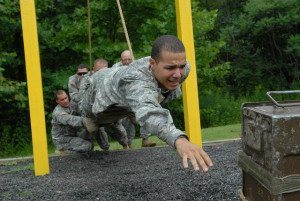 “A team is not a group of people who work together. A team is a group of people who trust each other
“A team is not a group of people who work together. A team is a group of people who trust each other
Simon Sinek
I recently wrote an article discussing building your “trust bank” with people in your organization to create change in an efficient manner (https://generalleadership.com/bank-trust-cash-change/ ). A recent event in my military unit emphasized to me that trust throughout an organization, top to bottom and bottom to top, is the most important factor for organizations to perform at a high level.
Recently, an officer in my unit decided to move on and take a position with another unit. This was a good opportunity for her, and she had my support and the support of the unit to move on to this position. I had the opportunity to work with her on different projects for more than 13 years. Upon her actual departure, I began to sense that this was a bigger loss organizationally than I first thought. As I reflected, I concluded that it was the total trust I had placed in her more than any skill set that was giving me this sense.
The realization became clearer as I contemplated how to replace her within the unit and through recruiting. Her most valuable skill set, to me as commander, wasn’t her engineering skill or military knowledge, it was the intangibles. I totally trusted her communication ability, her desire to make the best decisions for the unit and the customer, her transparency with me, and her ability to work out a solution to any project or task.
I believe that my recruiting message to the unit has been validated by this realization. When we discuss recruiting new officers, I state that we are looking for good officers first, good “Gumbies” second, and good technical engineers third. This is to emphasize that we will be a better organization if we, first, have professional people with integrity and honor (good officers). The second most important characteristics are people who are flexible, good communicators, fun, and team players (good “Gumbies” – our mascot). Lastly, we will consider the technical skills of the individual. We are a civil engineering unit, and there are some projects that would benefit from someone with particular and focused engineering skills (good technical engineers).
I believe that the best way to set the unit up for long-term success is to recruit good officers and good “Gumbies” above any technical skill set or requirement. Though we have some technical requirements, a team built of professionals who are transparent, great communicators, and team players can be totally trusted by the leadership to complete tasks the right way and represent the unit in an outstanding way. This creates a cohesive team of problem solvers that can accomplish any task and do it in a way that represents that Air Force and Air National Guard in a positive way. A team that accomplishes tasks in this way build credibility both within the organization and outside the organization. Highly satisfied customers within and outside the organization propagates more opportunities and ensures the sustainability of the team or unit.
Creating an environment where trust throughout an organization exists requires attention and conscious effort. An organization takes its cues and is a reflection of the leader. As the leader, we should take a look at ourselves and make sure that our actions and character are consistent with the trust factors discussed. What would our boss say about us? Additionally, what are we doing to create an environment that would attract and retain people that have these characteristics? Tom Ridge, Former Secretary of Homeland Security and fellow Pennsylvanian, is quoted as saying, “Trust is a great force multiplier.” I agree, do you?
